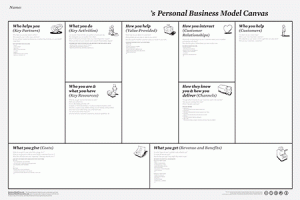 Here in Portland, Oregon (motto: “Keep Portland weird!”), we have plenty of kinky sex enthusiasts and professionals who serve them. And as it turns out, there’s a lot this industry can teach us much about our personal value propositions — the benefits we offer customers through our work.
Here in Portland, Oregon (motto: “Keep Portland weird!”), we have plenty of kinky sex enthusiasts and professionals who serve them. And as it turns out, there’s a lot this industry can teach us much about our personal value propositions — the benefits we offer customers through our work.
Before my wife gives me the evil eye, let me explain myself.
Recently, a local publication featured an interview with a professional sex worker who specializes in kinky encounters — let’s call her Joanne. What exactly do your customers pay for? the interviewer asked.
Readers, let’s see a show of hands: How many of you immediately thought “kinky sex”?
That seems logical enough. Kinky sex is clearly differentiated from, well, regular sex. So, is Joanne’s value proposition “kinky sex”?
No.
Joanne went on to explain that most people think her customers are strange, crazy, or even criminal. In short, most people consider them socially unacceptable.
Consequently, says Joanne, her customers are often secretive and ashamed.
But Joanne herself does not consider her customers strange, crazy, or criminal. She accepts them for who they are.
“My customers don’t pay for sex,” she said. “They pay for acceptance.”
Joanne’s insight into the benefit she provides clients highlights three key facts about value propositions:
 1. Activity Differs from Value
1. Activity Differs from Value
Many of us mistake activity for value. That’s why we’re quick to describe kinky sex as value rather than as an activity. Activity creates value, but it is separate from value itself. Use the Business Model Canvas to clarify the difference.
2. Activity is Tangible, Value Intangible
Activity can be seen — it’s tangible. But value is almost always intangible. That’s because value resides within the customer’s mind, in the form of an experience or memory or emotion.
3. Value is Tough to Identify
Joanne shows us that a value proposition can be tough to identify — and usually is. Note how quickly we assumed that “kinky sex” was her value proposition. But kinky sex is fundamentally different from acceptance.
Why should we be nitpicky about value propositions?
Because as professionals, our value propositions define the benefits we provide customers through our work. And to sell a value proposition, we must communicate it. To communicate it, we must define it. And to define it, we must identify it.
Joanne understands her value proposition brilliantly. How well do we understand our own?



